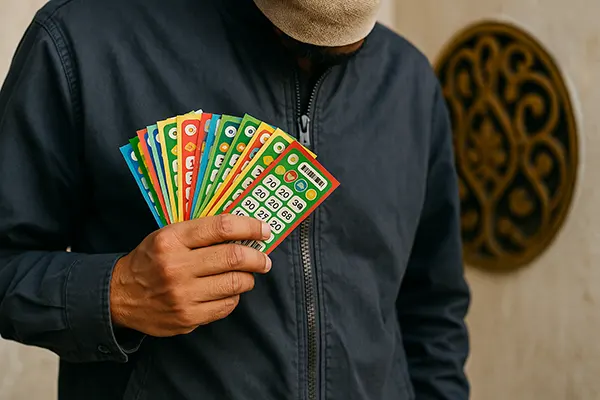Lotteries in Countries Where Gambling is Prohibited: How People Circumvent the Ban

Lotteries are a popular form of gambling worldwide, offering the chance to win substantial sums with minimal investment. However, in some countries, gambling, including lotteries, is strictly prohibited. Despite these legal constraints, people in such regions often find creative ways to participate in lottery games. This article explores how individuals in countries with gambling bans navigate these restrictions to engage in lotteries legally or through loopholes.
Legal Loopholes and Exceptions in Gambling Laws
One common way individuals participate in lotteries in countries where gambling is banned is by taking advantage of legal loopholes and exceptions. Some countries prohibit specific types of gambling but allow others, such as charitable or state-run lotteries. By structuring lotteries as charitable initiatives or state-controlled activities, organizations can legally offer lottery tickets to the public.
For example, in some Middle Eastern countries, while casino gambling and sports betting are prohibited, lotteries that support social or charitable causes may be allowed. These lotteries often frame the ticket purchase as a donation rather than a bet, thus bypassing gambling regulations.
Another method involves organizing private lottery pools or informal betting circles among friends or community members. Since these are not public or commercial in nature, they often escape legal scrutiny. However, participants take on significant risks, as authorities may still deem these activities unlawful if discovered.
International Online Lotteries
With the rise of the internet, participating in international online lotteries has become increasingly accessible, even in countries where local lotteries are banned. Many people use virtual private networks (VPNs) to access lottery websites hosted in countries where gambling is legal.
International lottery platforms often do not verify the geographical location of participants, allowing users from restricted countries to purchase tickets. Some even use international payment methods, such as cryptocurrencies, to avoid detection.
However, participating in international lotteries through such means can be legally ambiguous. If winnings are traced back to a prohibited region, they may be forfeited, or the participant may face legal consequences.
Social Media and Mobile Apps as Lottery Platforms
Social media platforms and mobile applications have also become a gateway for lottery enthusiasts in restricted regions. By hosting contests or giveaways that resemble lotteries, organizers create seemingly legal alternatives to traditional gambling. These contests typically require users to follow pages, like posts, or share content to enter, framing the activity as a promotion rather than a gamble.
Some mobile apps offer lottery-like experiences where players can purchase virtual tickets to win in-game items or gift cards. Since these do not involve real money directly and are often classified as “games of skill” rather than chance, they operate in a legal grey area.
While these methods allow for some form of participation, they do not offer the same level of financial reward as traditional lotteries. Nonetheless, they remain popular among those seeking a lottery experience without violating local laws.
Community-Based Lotteries and Fundraisers
In countries where government regulation is strict, community-based lotteries often emerge as alternatives. These are typically organized by local groups or associations, presenting the activity as a fundraiser rather than gambling. For instance, schools, sports clubs, or religious organizations might sell raffle tickets, with proceeds going toward community projects.
Although the primary purpose is fundraising, the chance to win a prize makes these activities resemble lotteries. Authorities may overlook such events if they serve a community purpose and do not involve large sums of money. However, in some jurisdictions, even small-scale fundraising lotteries require permits.
To maintain legality, organizers carefully avoid using language associated with gambling, focusing instead on the charitable aspects of the event. This cautious approach helps them navigate legal frameworks while still offering the excitement of a prize draw.

The Role of Cultural and Religious Factors
Cultural and religious beliefs significantly impact the acceptance and regulation of lotteries in various countries. In many Islamic nations, gambling is considered haram (forbidden), which leads to a total ban on lotteries. Yet, some Islamic countries find ways to integrate lotteries into state functions by framing them as funding mechanisms for public welfare.
For instance, in some jurisdictions, lottery revenue supports healthcare or educational initiatives. This approach aligns with the principle of communal benefit, which can make the lottery more culturally acceptable despite religious prohibitions.
However, even state-sanctioned lotteries often face criticism from conservative groups, leading to ongoing debates about their ethical implications. The tension between economic benefit and moral considerations continues to shape lottery regulations worldwide.
Lottery Syndicates and Collective Ticket Purchasing
In countries where individual lottery participation is risky, people may join syndicates to reduce personal exposure. A syndicate pools resources to purchase tickets, distributing any winnings among members. Since the tickets are technically bought by a single entity, the individual risk of legal repercussions is minimized.
Moreover, syndicates often operate informally, avoiding public advertising or large-scale participation. This discreet approach makes it harder for authorities to detect or prosecute participants.
While this method mitigates some legal risks, it also introduces challenges related to trust and fairness within the group. Disputes can arise over ticket ownership or prize distribution, especially if significant sums are at stake.
